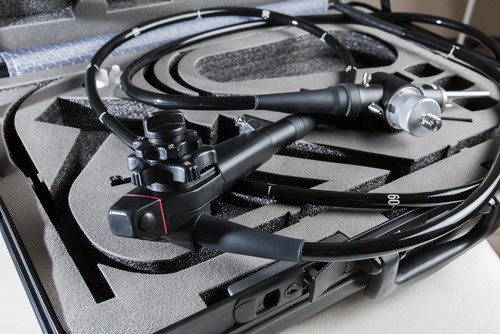What You Should Know about Cleaning Your Endoscopy Equipment

Are you caring for your endoscope equipment properly? If not, you might have to face certain consequences. At M.D. Endoscopy we know just how important it is to clean and care for your equipment properly. Learn about a few of the consequences below that you can avoid by ensuring you're following the proper cleaning methods for the types and brands of endoscopes you use in your procedures.
2 Major Consequences of Improper Cleaning
Before using an endoscope on a patient, you should be sure that it has been cleaned, disinfected, and sanitized. If you skip any steps, it could result in the following:
- Cross-Contamination: Failing to properly clean an endoscope can result in major complications for your patients. Using an endoscope on a patient that hasn't been thoroughly disinfected and sanitized could increase the risk of passing on a deadly or disabling infection to your patients.
- Device Failures: Not only can inadequate cleaning methods spread diseases and illnesses, but the function of the endoscopic instruments themselves can suffer as well. Instrument channels getting blocked is the most common device failure resulting from improper cleaning. When you have an malfunctioning equipment, you'll end up wasting your time and money getting it repaired.
To avoid the above, you need to ensure that you and your team are cleaning instruments properly.
The Key to Proper Cleaning
If you want to prevent infections and keep your instruments in optimal condition, you need to have a foolproof cleaning process set in place. The following are essential for infection control and prevention:
- Having a dedicated space for cleaning the instruments
- Cleaning endoscopes manually
- Keeping records of the cleaning, disinfecting, and sanitizing of equipment
- Disinfecting equipment daily even if it was cleaned and disinfected the day before
- Using different cleaners designated for different endoscope types and brands
- When possible, avoiding or limiting exposure to cleaners and disinfectants that could result in adverse reactions for your patients
The most important thing is making sure that you have a system in place that will keep you compliant with all regulations and minimize the risks of spreading disease as much as possible. Because the cleaning processes and cleaning solutions will differ by brand and type, you should be sure to sure to familiarize yourself and your teams with the proper procedures for each instrument.
Have specific questions about the cleaning process? Contact us today! We're happy to help you make sure you're following the right cleaning procedures.
